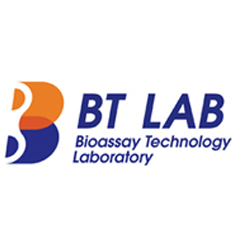Product Description
Mouse Lysozyme (LZM) ELISA Kit | AE63244MO | Abebio
Species Reactivity: Mouse (Mus musculus)
Abbreviation: LZM
Alternative Name: N/A
Application: ELISA
Range: 0.156-10 ng/mL
Sensitivity: 0.055 ng/mL
Intra-Assay: ≤4.5%
Inter-Assay: ≤9.6%
Recovery: 1, 03
Sample Type: Serum, Plasma, Other biological fluids
Detection Method: Sandwich
Analysis Method : Quantitive
Test Principale: This assay employs a two-site sandwich ELISA to quantitate LZM in samples. An antibody specific for LZM has been pre-coated onto a microplate. Standards and samples are pipetted into the wells and anyLZM present is bound by the immobilized antibody. After removing any unbound substances, a biotin-conjugated antibody specific for LZM is added to the wells. After washing, Streptavidin conjugated Horseradish Peroxidase (HRP) is added to the wells. Following a wash to remove any unbound avidin-enzyme reagent, a substrate solution is added to the wells and color develops in proportion to the amount of LZM bound in the initial step. The color development is stopped and the intensity of the color is measured.
Product Overview: Lysozyme, also known as muramidase or N-acetylmuramide glycanhydrolase, are a family of enzymes (EC 3.2.1.17) which damage bacterial cell walls by catalyzing hydrolysis of 1, 4-beta-linkages between N-acetylmuramic acid and N-acetyl-D-glucosamine residues in a peptidoglycan and between N-acetyl-D-glucosamine residues in chitodextrins.Lysozyme is abundant in a number of secretions, such as tears, saliva, human milk and mucus. It is also present in cytoplasmic granules of the polymorphonuclear neutrophils (PMN) . Large amounts of lysozyme can be found in egg white. C-type lysozymes are closely related to alpha-lactalbumin in sequence and structure making them part of the same family.
Stability: The stability of ELISA kit is determined by the loss rate of activity. The loss rate of this kit is less than 5% within the expiration date under appropriate storage condition. The loss rate was determined by accelerated thermal degradation test. Keep the kit at 37°C for 4 and 7 days, and compare O.D.values of the kit kept at 37°C with that of at recommended temperature. (referring from China Biological Products Standard, which was calculated by the Arrhenius equation. For ELISA kit, 4 days storage at 37°C can be considered as 6 months at 2 - 8°C, which means 7 days at 37°C equaling 12 months at 2 - 8°C) .
 Euro
Euro
 USD
USD
 British Pound
British Pound
 NULL
NULL








